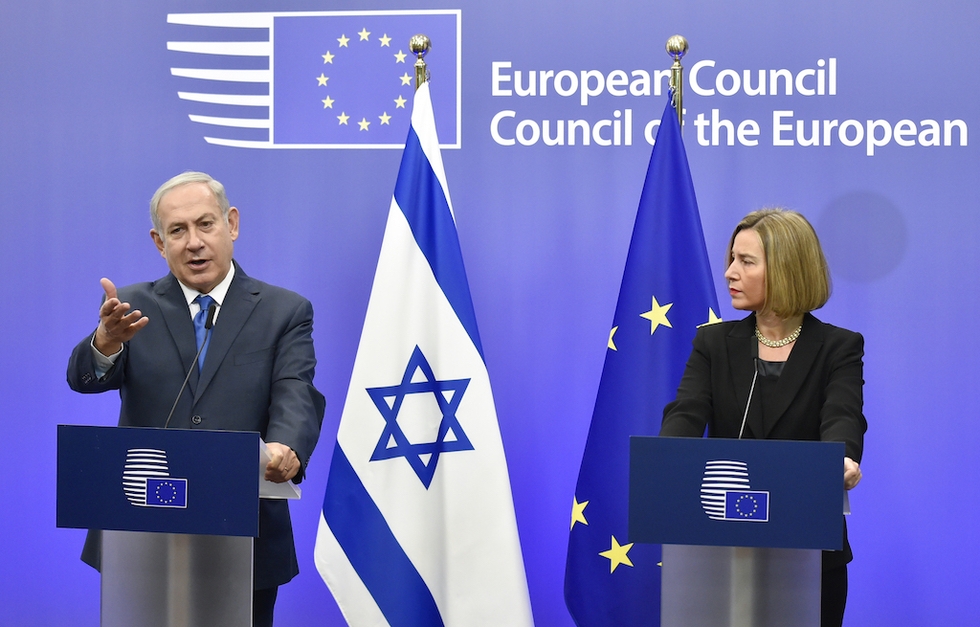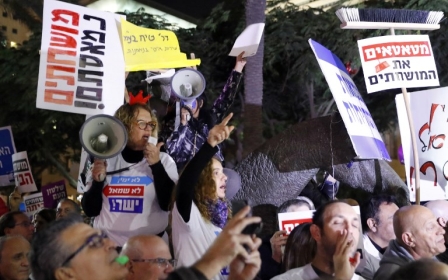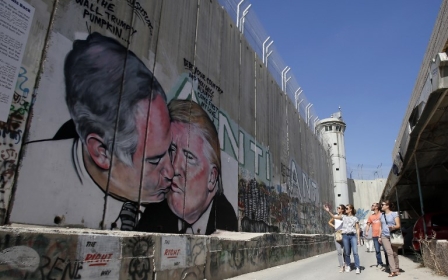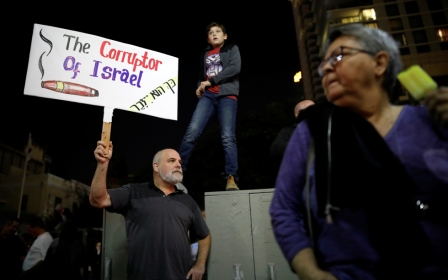Netanyahu rebuffed by EU after saying he expects bloc to back Jerusalem move

Israeli Prime Minister Benjamin Netanyahu on Monday urged the European Union to follow the US in recognising Jerusalem as his country's capital, but was soon rebuffed by even his closest allies.
Before a meeting with EU foreign ministers in Brussels, Netanyahu said the US president's move, condemned by the Palestinians and by European governments, would contribute to peace in the Middle East. He called on the Palestinians to recognise Israel as a Jewish state and to accept that Jerusalem was its capital.
"It makes peace possible because recognising reality is the substance of peace, the foundation of peace," Netanyahu told reporters as he was greeted by EU foreign policy chief Federica Mogherini before a meeting of EU foreign ministers in Brussels.
"There is now an effort to bring forward a new peace proposal by the American administration. I think we should give peace a chance. I think we should see what is presented and see if we can advance this peace."
But even Israel's closest European allies such as the Czech Republic warned Trump's decision was bad for peace efforts, while France insisted Jerusalem's status could only be agreed in a final deal between Israelis and Palestinians.
Asked by reporters about Trump's decision to switch the US embassy to Jerusalem, Czech Foreign Minister Lubomir Zaoralek said: "I'm afraid it can't help us."
I'm convinced that it is impossible to ease tension with a unilateral solution
- Czech Foreign Minister Lubomir Zaoralek
Last week, the Czech foreign ministry said it would begin considering moving the Czech embassy from Tel Aviv to Jerusalem, which many in Israel saw as an endorsement of Trump's move.
But Prague later said it accepted Israel's sovereignty only over West Jerusalem.
"I'm convinced that it is impossible to ease tension with a unilateral solution," Zaoralek said as he and his counterparts arrived for a breakfast with Netanyahu. "We are talking about an Israeli state but at the same time we have to speak about a Palestinian state."
Netanyahu said Trump's move, condemned by the Palestinians and by European governments, should be emulated by them.
"It's time that the Palestinians recognise the Jewish state and also recognise the fact that it has a capital. It's called Jerusalem," he said.
"I believe that, even though we don't have an agreement yet, this is what will happen in the future. I believe that all, or most, of the European countries will move their embassies to Jerusalem, recognise Jerusalem as Israel's capital and engage robustly with us for security, prosperity and peace."
'International consensus'
Mogherini, welcoming Netanyahu on the first visit to the EU by an Israeli prime minister in 22 years, said the bloc would continue to recognise the "international consensus" on Jerusalem.
She repeated the EU's commitment to a two-state solution and that it was in Israel's interest to find a sustainable solution to its conflict with the Palestinians. The EU, she said, would step up its peace efforts and would hold talks with Palestinian President Mahmoud Abbas next month.
She also condemned attacks on Israel and on Jews elsewhere in the world, including in Europe. Trump's plan to move the US embassy from Tel Aviv to Jerusalem, which the secretary-general of the United Nations said could damage peace efforts, has prompted sometimes violent protests.
A demonstration condemning Netanyahu's visit is planned for later in the morning in Brussels.
The Israeli leader stressed his country's partnership with Europe, saying its intelligence cooperation had helped prevent militant attacks while its security role in the Middle East had curbed Islamic State's expansion in the region.
He also highlighted Israel's economic contribution in new technologies. Mogherini said the EU and Israel were "friends and partners".
New MEE newsletter: Jerusalem Dispatch
Sign up to get the latest insights and analysis on Israel-Palestine, alongside Turkey Unpacked and other MEE newsletters
Middle East Eye delivers independent and unrivalled coverage and analysis of the Middle East, North Africa and beyond. To learn more about republishing this content and the associated fees, please fill out this form. More about MEE can be found here.




